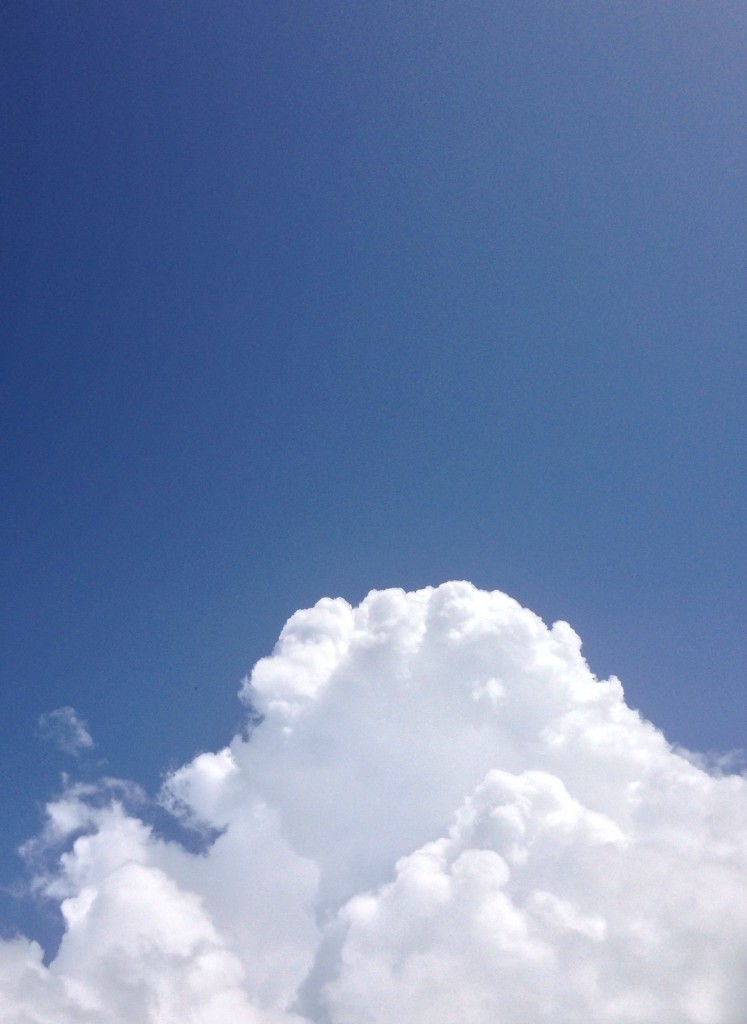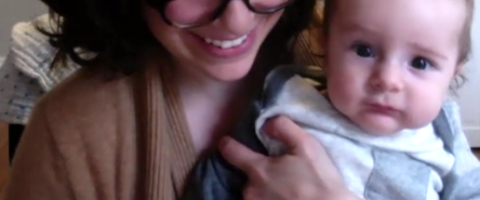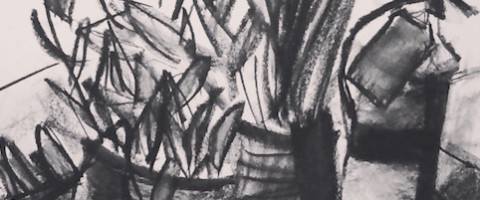I’d been sitting at my desk on the fifth floor of a corporate building in lower Manhattan for five hours when James Meadow told me I’d probably shed millions of microbes all over my cubicle that day. I looked down at my keyboard and tried to imagine the microorganisms, my microorganisms, marching off my fingertips like passengers off boat ramps. Then Meadow, a data scientist, told me my microbes were probably also wafting over to my neighbor’s cube. I put the phone receiver down a moment and peered over the gray modular divider at my colleague, unsuspectingly typing just three feet away from me. He looked okay. But, was I wafting?
“You know the dirty kid from Peanuts? Pig-Pen? It turns out we all look like that,” Meadow said into the phone. He works at Phylagen, a company in San Francisco that focuses on improving the health of the indoor microbiome in places like hospitals and homes. “We give off a million biological particles from our body every hour as we move around,” he continued. “I have a beard; when I scratch it, I’m releasing a little plume into the air. It’s just this cloud of particles we’re always giving off, that happens to be nearly invisible.”
I was speaking to Meadow for a story for Newsweek, where I work, and in whose offices I sat in the aforementioned cubicle. (I was now acutely aware I was not alone. I pictured my army of microbes arranged on the surfaces around me like pine needles around a drying Christmas tree. My fetid silhouette.)
The recent torrent of microbiome research has revolutionized our understanding of how we interact with the world, as scientists draw connections between all manner of health issues and the creatures living in our guts, on our skin, and in our vaginas. Our microbes influence our immune systems, our smells, and our attractiveness to mosquitoes. Emerging research suggests they may play a role in autism, depression, anxiety, and possibly even who we are attracted to.
In other words, our microbes might mediate how we think and feel. Upon closer examination, our individuality — what makes us ourselves — may look quite a bit more like a contained democracy than an autonomous dictatorship. We are, after all, outnumbered 10 to one by our microbial tenants; taken together, the many colonies of microorganisms living in and on us can weigh up to six pounds. That’s very nearly the weight of another limb.
But when we spoke, Meadow and his colleagues were about to publish a paper, written while he was a postdoctoral researcher at the University of Oregon, that expanded its gaze beyond the bounds of the body. It is part of a new field of microbiome research that has pieced together the fact that we’re living, at all times, within our own microbial clouds. Our microbiomes extend, very literally, into the air around us.
I am not a person that likes to take up space. I’m 5’ 6’’, of average to slim build; I make myself small on shared benches and slip into slivers of negative space on packed subway cars. I hate carrying too much and have a mild phobia of schlepping multiple shopping bags, probably from memories of my mother’s bulging bohemian purses taking up embarrassing-to-me acreage in restaurant booths and between theater seats. I’ve collapsed my shoulders forward since childhood, narrowing my frame.
“We’re living, at all times, within our own microbial clouds. Our microbiomes extend, very literally, into the air around us.”
The idea that my microbes are seeping into the air around me troubles the same part of me that doesn’t like carrying too many bags. It implies an overflowing, a lack of control of my autonomous unit. But then who am I to think I ever had much control over my physical form, which I barely understand, which any of us barely understand? Maybe we should all rearrange our bodily perceptions to include an extra few cubic feet of air.
Heat rises. My body heat, Meadow explained, was propelling my biological particles off me and outwards all the time. My breath, also included as part of my microbiome, is warm and does the same. Each word I choose to put out into the world comes with a host of bacteria I didn’t. The size of my cloud will have to do, in part, with how hot or cold my body temperature is at the moment, he said. (I tend to run warm, I think. I probably have a big cloud.)
The rest is up to the “viscosity of the air,” which is telling of the scale we’re working with here. “We can only feel air when it’s hitting us,” Meadow explained. But for something as miniscule as a microbe, air acts more like water. Any minor movement can keep a microbe afloat in a room indefinitely. “The tiniest bacteria can be picked up and stay in the air for hours,” he said.
“Spirit is matter reduced to an extreme thinness: O so thin!” Ralph Waldo Emerson once wrote. I looked over at my unsuspecting neighbor again. I was literally all over the place.
In Buddhist meditation, the goal is to dissolve the self. Of course, one must know what the self is before it can be annihilated. The way the ‘self’ is described in Vipassana, a form of Buddhist meditation, is as a collection of tiny, quivering units. Some call them atoms. At the root, though, is the idea that we are not ourselves — rather, we are only the sum of a bunch of individual flecks that happen to be humming along in the shape of a person. A happy accident perhaps. The self is dissolved when that is understood.
“Each word I choose to put out into the world comes with a host of bacteria I didn’t.”
As we learn more about the integration between our health and our microbes, they begin to seem more indistinguishable from what we conceive of as ourselves. And the microbial cloud, it seems, is poised to make the link between one’s identity and one’s microbes very tangibly inextricable. They may in fact announce our identities for us.
In Meadow’s study, he and his research partners left 11 people in a sanitized experimental room. They sampled the air around them, and sequenced the microbes floating around. An occupied room, they found, is microbially distinct from an unoccupied one. More strikingly, when three people were left in the room together for four hours, Meadow’s team was able to distinguish between each person based just on the bacteria they’d given off. “Each occupant’s personalized airborne signal can be statistically differentiated from other occupants,” the researchers wrote.
“This was a first stab at it to see if it was possible,” Meadow told me. “We didn’t expect to be able to tell people apart. It kind of blew us away.”
The science on this is still relatively crude. For now, one of the chief ways the researchers could distinguish people via their microbial clouds was based on gender. The researchers could identify when a woman was in the room, because the microbes in the air around her included Lactobacillus, a type of bacteria prevalent in a healthy vagina.
As the field matures, and the markers that would identify people based on their microbial clouds becomes more granular, Meadow thinks it could form the basis for a new type of forensics. Your body is announcing who you are all the time (for example, a person with a vagina). Already, we know that a person’s gut microbiome can say a lot about their health. That may hold true for the microbial cloud too. Slowly, Meadow thinks, we’ll learn to read the signals.
In The Argonauts, the author Maggie Nelson ponders her own identity for many pages, looking for what, if anything, about identity can be isolated, categorized, and pinned down. (Not much, it turns out.) In thinking about gender identity, she draws a comparison to color:
Gender does share with color a certain ontological indeterminacy: it isn’t quite right to say that an object is a color, nor that the object has a color… Nor is color voluntary, precisely. But none of these formulations means that the object in question is colorless. (15)
Similarly, perhaps, the microbial cloud’s presence isn’t quite the whole of one’s selfhood — your microbiome is not you, per se, though it might present a version of your identity. But neither is it simply a distinguishing item you happen to carry, like a purse. It is no voluntary appendage.
The color of a tangerine is orange. The microbial cloud of a person with a healthy vagina contains Lactobacilli. We are not our microbiomes, but we certainly aren’t ourselves without them. But, just as our “selves” are not static, neither are our microbiomes.
“It’s not possible to live twenty-four hours a day soaked in the immediate awareness of one’s sex. Gendered self-consciousness has, mercifully, a flickering nature,” Nelson quotes from Denise Riley, a poet who also spent many pages contemplating selfhood.
As far as we know, our microbial selves may be of flickering natures too. Dr. Martin Blaser, who was not involved in Meadow’s study, points to all the ways our microbiomes may shift, though how much is still unbeknownst to us. Blaser is the director of NYU’s Human Microbiome Program and considered one of the foremost experts in the field. He thinks it’s possible that detectives in a distant future might “take a big vacuum and see what microbes are there” in the same way they dust for fingerprints now.
“Your microbiome is not you, per say, though it might present a version of your identity. But neither is it simply a distinguishing item you happen to carry, like a purse. It is no voluntary appendage.”
Blaser also thinks that the ability to do a sophisticated reading of one’s microbes could present some of the same privacy concerns that electronic security presents now. “Privacy potentially could be breached in many realms,” he said. Meadow echoed this concern. There may be too much of ourselves packed into that data for comfort.
But, given the changeability of our microbiomes, there still may be room for fickle fingerprints. For example, Blaser says, researchers still don’t know whether taking antibiotics would totally rearrange a person’s microbial cloud, to the point of not being able to distinguish them. Other more routine changes, like showering, or traveling to a new city, may very likely rearrange a person’s microbial community, too.
There is something comforting about the possibility of that evasion. A mutable microbial identity to match the rest of our volatile selves. Less static than a fingerprint, less easily pinned down, but maybe more faithful to natures that flicker. Biology feels at times anathema to our modern understanding of identity, like it has little to no place in the self-determination contained in that word. But the sum of our biological particles, at least, may be just as flexible and formed by experience as we are.
In a moment of speculative fantasy, I picture criminals or deviants or privacy activists downing antibiotics to scramble the microbial clues they leave behind. (Cloud hacking?) Vanishing “without a trace” may be a scientific impossibility, but perhaps we could still dupe the forensic detectives of the future.




